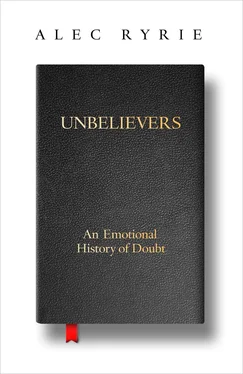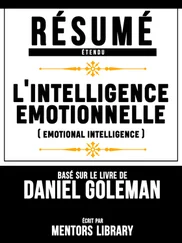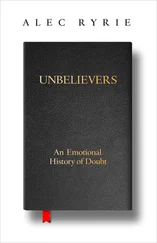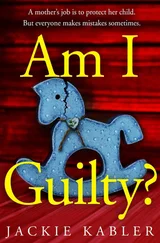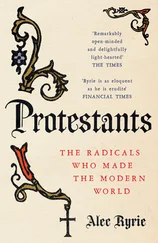For all the nationalistic tub-thumping, there is no mistaking the undercurrent of concern. The old unbelief of anger had acquired a new mood of cosmopolitan, satirical scorn. The rumoured covens of mocking atheists gathering in sixteenth-century cities, calling themselves ‘the damned crew’, are probably as imaginary as Of the Three Impostors , but like that phantom book, they matter. Believers began to hear knowing laughter at the back of their minds, ‘turning things that are serious into mockery’. [57]Faith felt simple; doubt, sophisticated. In the 1580s, Jacques du Perron, a French royal servant and future cardinal, presented an argument for the existence of God to King Henry III’s court, as a formal exercise and an entertainment. Basking in his audience’s applause, he was foolish enough to add that, if they wanted, he could present the opposite case as well. The king, who already had quite enough problems with religious extremists, was furious, but there is no reason to think that du Perron was a secret atheist. He explained, backpedalling frantically, that he was merely hoping ‘to demonstrate his wit’ – and nothing was wittier than a knowing flirtation with atheism. [58]That flirtation did not, in itself, significantly threaten Europe’s long marriage to the old faith. Only if the marriage itself ran into trouble might it become dangerous.
The cynicism and mockery of Renaissance humanists did not mark the start of a high road to modern atheism, any more than the anger of medieval blasphemers or the professional disdain of learned physicians. Self-limiting and by definition marginal, these atheisms were irritants, in equilibrium with the faith rather than destabilising it. If the Renaissance contained a serious threat to Christendom, it was of a subtler kind.
Machiavelli’s open fascination with Lucretius’ doctrine of chance was very unusual. Most Renaissance scholars treated Lucretius the way medieval theologians had treated Aristotle: they took what they could use and left the rest. The historian Ada Palmer has recently examined all fifty-two extant fifteenth-century manuscripts of Lucretius’ poem. Machiavelli’s is quite unlike any of the others. The sections of the poem which deny the immortality of the soul and assert that the world is governed by chance were sedulously ignored by most fifteenth-century commentators. More than 90 per cent of the notes Palmer has found comment either on Lucretius’ style and language, or on incidental historical information in the poem. Most of the rest focus on Lucretius’ moral philosophy or medical opinions. Aside from Machiavelli’s, only five of the manuscripts pay more than the most passing attention to Lucretius’ dangerous ideas, one of them only briefly, the other four in order firmly to mark them as errors. [59]Most Renaissance readers believed, or wanted to believe, that Epicureanism could be house-trained.
It did not quite work. Renaissance scholars were keen to learn from the ancients’ exemplary lives as well as their exemplary Latin (indeed, they were convinced the two were connected). Surely – so the argument went – Christians should be spurred to new heights of righteousness by the shameful thought that these mere pagans had outstripped them in virtue? It was an innocent rhetorical ploy, its double edge quite unintended. Christianity was, in this view, simply the consummation of all that was best about ancient philosophy. The greatest of the Renaissance’s house-trainers, the Dutch scholar Desiderius Erasmus, included in his Colloquies a self-styled Epicurean who claimed that ‘there are no people more Epicurean than godly Christians’: for Epicureans held that the purpose of human life is the pursuit of happiness, and as everyone knows, true happiness is to be found in virtue. It was an over-tidy view of Epicureanism – Lucretius’ work has rather more sex in it than Erasmus’ – but also a singular view of Christianity. Erasmus united Renaissance philosophy with his homeland’s tradition of practical devotion, and a dash of German mysticism, to conclude that the heart of Christianity was its ethics. Christian theology conventionally emphasises that human sin is pervasive and that sinners must be saved by God’s grace. Erasmus, who was suspicious of too much theology, wanted his readers to strive not to be sinners at all. Christians had traditionally thrown themselves on Jesus Christ’s mercy, as their Saviour. Now they were being urged to imitate him, as their exemplar. [60]
So far, this was no more than a shift of emphasis. Erasmus remained a faithful, if provocative, Catholic Christian. But the implications were unsettling. If Christianity was supremely about ethics, and if ancient pagans had been outstandingly virtuous, did that mean unbelievers could achieve true godliness? Christ might be the ideal example, but did that mean he was necessarily essential? Could reason and the God-given natural law implanted in every human soul not bring us to the same destination? In which case, should Christians concentrate less on the devotional and sacramental life of the Church and more on cultivating the kinds of virtues which pagans and Christians might share? Erasmus and his colleagues were in no sense trying to ask such provocative questions. They were trying to purify Christianity, not undermine it. That is what, in the centuries to come, would make their approach so dangerous.
2
The Reformation and the Battle for Credulity
‘“I dare say you haven’t had much practice,” said the Queen. “When I was your age, I always did it for half an hour a day. Why, sometimes I’ve believed as many as six impossible things before breakfast.”’
Lewis Carroll, Through the Looking Glass
‘The impossible often has a kind of integrity to it which the merely improbable lacks.’
Douglas Adams, The Long Dark Tea-Time of the Soul
There is a well-established view that the credit, or blame, for modern unbelief lies with the Protestant Reformation, a view most recently laid out in Brad Gregory’s 2012 book The Unintended Reformation . The argument goes something like this. Martin Luther’s defiance of the pope from 1517 onwards ended up shattering Western Christendom into rival parties, each of which regarded the others’ errors as intolerable. As they dug their trenches and pounded each other with polemical and then with literal artillery, they tore up the religious landscape that they were fighting over until it could no longer be recognised. With all sides condemning each other’s false beliefs, it was hard to prevent civilians caught in the crossfire from reaching the conclusion none of the combatants wanted: what if they are all wrong? As battles subsided into exhausted ceasefires, armed truces and frozen conflicts, ordinary people and their governments began systematically to evade those conflicts and the terrible destruction they could cause by confining ‘religion’ to a private sphere and creating a new ‘secular’ public space. People who could not agree about religion could at least work around it, and discovered that they did not particularly miss it. And so religion was confined to quarters, like a once-formidable relative sent to a nursing home: spoken of with respect, paid a ritual visit occasionally, its debts honoured, but not allowed out in public where it might cause distress or embarrassment. In truth – though it would be crass to say so out loud – it was simply kept ticking over until it died a natural death. [1]
It is a powerful story with a lot of truth in it. But the world it explains is not quite the world we have. It does not explain why European Christianity endured for so many centuries after the Reformation; nor why, in our own times, a religiously fractured society like the United States is so much less secular than relatively homogeneous ones like Norway or France. Above all, it mistakes the part that unbelief played in the Reformation itself. Unbelievers did not merely play supporting roles, as battlefield medics or architects of postwar reconstruction. Unbelief was a part of the action from the beginning, and its role in the conflict was decisive. It was not a by-product of the Reformation conflicts. It was a weapon in them.
Читать дальше
